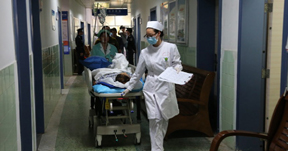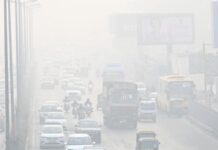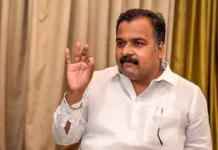 NEW DELHI: Around 75 per cent of Indians who took part in a WHO survey think, incorrectly, that colds and flu can be treated with antibiotics, the UN agency said as it sought to highlight the issue of widespread misunderstanding about antibiotic resistance.
NEW DELHI: Around 75 per cent of Indians who took part in a WHO survey think, incorrectly, that colds and flu can be treated with antibiotics, the UN agency said as it sought to highlight the issue of widespread misunderstanding about antibiotic resistance.
Sharing the findings of a multi-country survey, WHO said that misunderstanding about antibiotic resistance poses a threat to public health while many also do not understand how to prevent it from growing.
The survey, conducted in 12 countries and released in Geneva, also said that in India only 58 per cent of the respondents knew that they should stop taking antibiotics only when they finish the course as directed.
“More than three quarters (76 pc) of respondents report having taken antibiotics within the past six months. 90 per cent say they were prescribed or provided (antibiotics) by a doctor or nurse.
“Three-quarters (75 pc) of respondents think, incorrectly, that colds and flu can be treated with antibiotics, and only 58 per cent know that they should stop taking antibiotics only when they finish the course as directed,” a WHO statement said.
Elaborating about the respondents in India, it said that while 75 per cent agreed that antibiotic resistance was one of the biggest problems in the world, 72 per cent believed that experts will solve the problem before it becomes too serious.
Antibiotic resistance occurs when bacteria change and become resistant to the antibiotics used for treating the infections they cause. Over-use and misuse of antibiotics increases the development of resistant bacteria.
“As the WHO ramps up its fight against antibiotic resistance, a new multi-country survey shows people are confused about this major threat to public health and do not understand how to prevent it from growing,” the statement said.
As per the survey, almost two-thirds (64 pc) of some 10,000 people covered across 12 countries said they know that antibiotic resistance is an issue that could affect them and their families, but how it affects them and what they can do to address it are not well understood.-PTI






